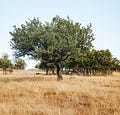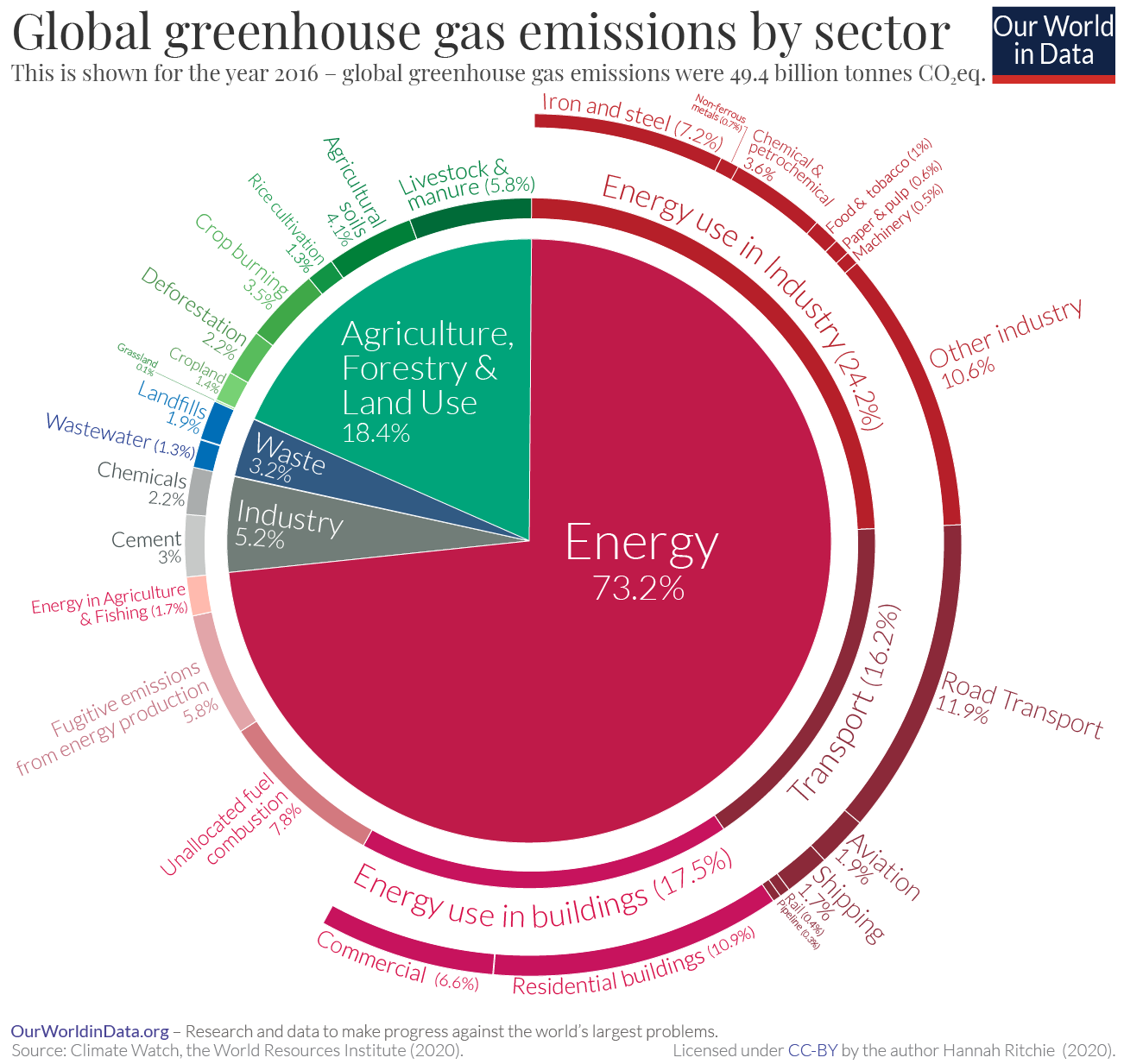I Should Get Credit for my Trees
Everyone's talking about climate-smart agriculture (CSA). The World Bank has a CSA webpage, as do the United Nations and the USDA. Earlier this year, the USDA offered one billion dollars for "pilot projects that create market opportunities for commodities produced using climate-smart practices." The US Senate's recently announced Inflation Reduction Act includes $21.25 billion for CSA.
Agriculture contributes about a 18% of the world's greenhouse gas emissions, most of which is methane from livestock burps and manure, carbon from soils on land converted to agriculture and nitrous oxide from nitrogen fertilizer. Climate-smart agriculture seeks to reduce those emissions.
Agricultural emissions are complicated because it both absorbs and emits a lot of greenhouse gas. As I wrote in this Ag Data News article, crops absorb about 17 gigatons (GT) of carbon from the atmosphere through photosynthesis, which is almost double the 9.4 GT emitted by burning fossil fuels.
The so-called Inflation Reduction Act (which is really money for climate change mitigation paid for by higher corporate taxes, prescription drug pricing reform and increased tax enforcement) contains substantial funding for farmers to "improve soil carbon or reduce nitrogen losses or greenhouse gas emissions, or capture or sequester greenhouse gas emissions, associated with agricultural production". This money would be distributed under existing programs such as the Environmental Quality Incentives Program and the Regional Conservation Partnership and would likely go to activities that absorb, or sequester, carbon, e.g., reduced tillage or planting trees.
And this is where you'll find economists waving the additionality flag.
Policies are additional if they change behavior. You should not pay people to do things they would have done anyway, the economist says, because such payments would be wasteful. If a farmer has already planted trees, then paying them for it now is not additional.
And this is where the farmer says: "That's not fair. I should get credit for the trees I planted because they are sequestering carbon. By photosynthesis, they are pulling carbon out of the air and storing it in wood. It seems unfair if my neighbor get the subsidy for planting trees next year, but I don't get credit for trees I planted last year."
I agree.
I think additionality is the wrong thing to focus on. Farmers should get credit for their trees no matter when they planted them. But, there's a caveat: they should also accrue debits for trees they remove.
To understand why, imagine you are trying to prevent a bucket of water from overflowing. There is water running into the bucket and the bucket has holes in it. The water in the bucket is the greenhouse gases in the atmosphere. The water running in is like burning fossil fuels, which sends carbon into the atmosphere. The holes are like trees, and the water flowing out of the bucket is the carbon sequestered by trees.
Whether it's an existing hole or a new hole, water will flow out of it and help prevent the bucket from overflowing. Similarly, old and new trees alike sequester carbon. Also similarly, cover crops can sequester carbon in the soil whether or not they were induced to do so by a subsidy.
The problem is what happens to the carbon in the tree when it dies. If you burn the tree or let it decay, then the carbon goes back to the atmosphere. This would be like catching all the water that pours out a hole and dumping it back in the bucket. You end up back where you started.
So, focus policy incentives not on additionality but on the net change in carbon stocks. How can we incentivize reductions in the carbon stock in the atmosphere and dis-incentivize increases in the carbon stock?
This means you can pay farmers for trees or cover crops that sequester carbon, but only if you have a mechanism to penalize future re-emission of the sequestered carbon. You need a plan for what happens to the trees when they die, or how to prevent future tillage from releasing soil carbon.
I would call that climate smart.





